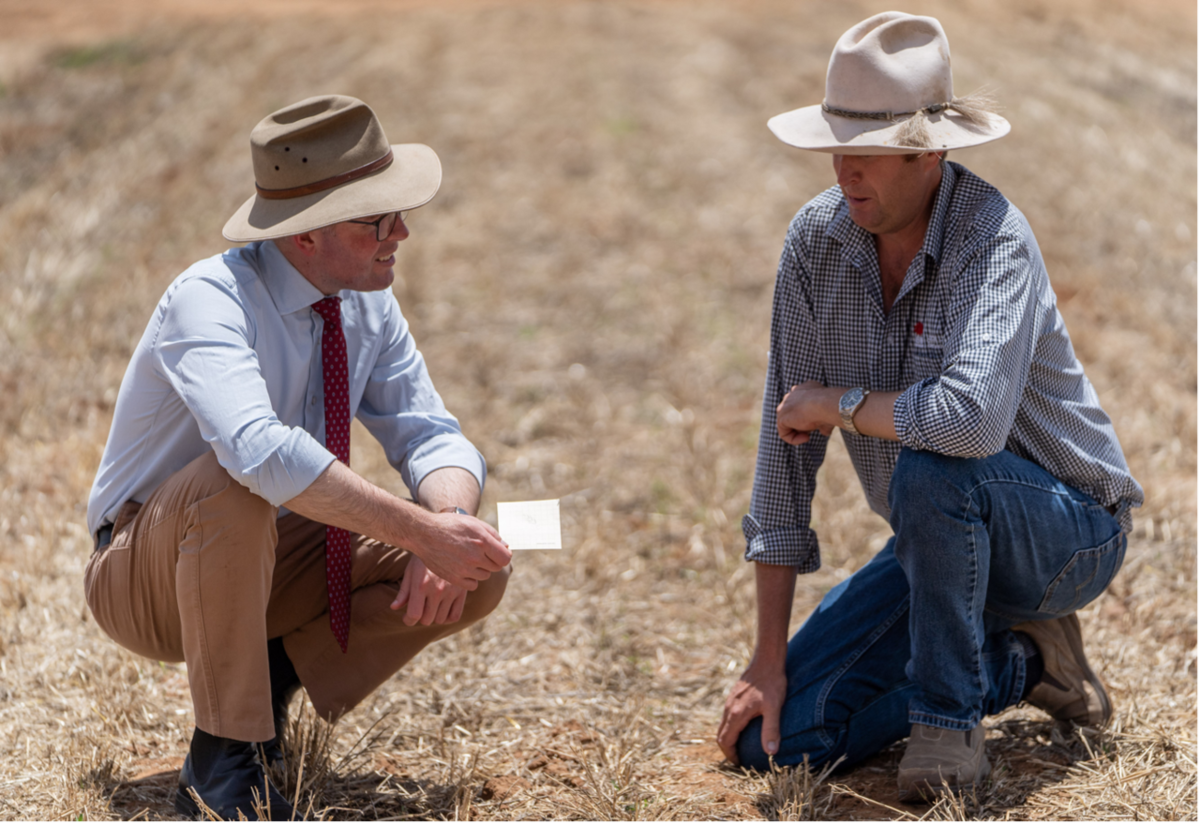Mouse baits extended as plague fears continue
Laura Williams
12 December 2021, 2:13 AM
 Adam Marshall assesses the mice damage with a local farmer using a chew card. (Supplied)
Adam Marshall assesses the mice damage with a local farmer using a chew card. (Supplied)While the recent mice plague is a trauma that locals would like to leave in the past, the extension of mice support reflects concerns that we may not have seen the last of them.
This week Minister for Regional NSW Paul Toole announced the extension of mice bait rebates for famers, small businesses, and households into 2022, with primary producers being able to claim up to $10,000.
“The reports we are getting indicate mice numbers are down, but we can’t be complacent, which is why we’ve extended the deadline,” Mr Toole said.
Depending on circumstance, the rebates offer up to $500 or $1000 for households and small businesses, who have until 31 January to claim to help meet the cost of baits, traps, and cleaning materials.
The rebate is worth $31 million, and so far more than 52,500 households and 6,5000 small businesses have taken advantage of the assistance to counter the damage.
Minister for Agriculture Adam Marshall said the primary producer rebates have proven very successful so far and were critical in helping keep numbers down.
“Now is not the time for famers to be doing paperwork, they should instead be focused on managing their properties through harvest and rain events,” Mr Marshall said.
Amid fears of mice numbers ruining what was predicted to be a bumper harvest, farmers around the region baited early with zinc phosphide, for which they can make multiple claims of up to the $10,000 cap and receive cash flow support earlier.
While reports of high mice numbers have remained varied but low, experts are concerned that we are yet to reach the end of the tunnel.
According to a report from the Grains Research and Development Corporation (GRDC), the conditions – like last year – are perfect for mice breeding to escalate, despite populations having crashed from last year.
“The experts are also telling us, although the number of mice has reduced, it is critical to make this harvest as clean as possible to reduce available food and shelter,” Mr Marshall said.
“The Rural Assistance Authority has already approved millions of dollars in rebates, however I want to see as much money back in farmers’ pockets as possible,” Mr Marshall said.
Farmers are being encouraged to help prevent further plague damage by reporting any known on-farm rodent activity to the Local Land Services reporting tool, to help provide a better snapshot of populations across the state. Chew cards are used to record the data.
So far, reports have been made from across the Western Plains using the mice monitoring tool, including Warren, Coonamble, Walgett, Narromine, and Bogan shires. The damage to the chew card in most reports was low to none.
“By asking farmers to use mouse chew cards once a week and record their results by filling out a quick online form, not only can we closely track any rise in numbers, but also see what level of damage is occurring in particular crops,” Mr Marshall said.
Households and small businesses producers can apply for the rebates through Service NSW, while primary producers can apply through the Rural Assistance Authority.